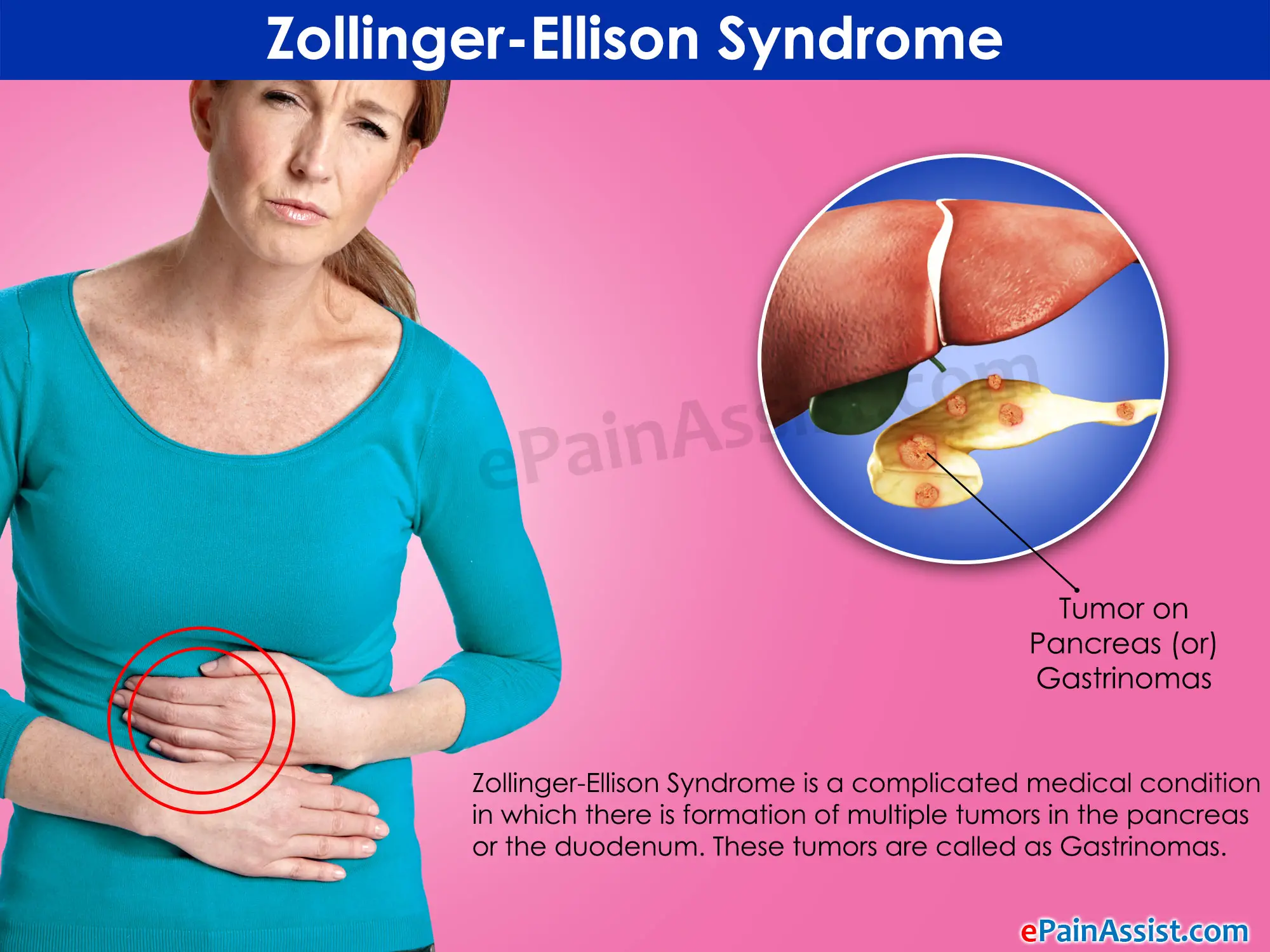Zollinger-Ellison syndrome is a health care condition characterized by gastrinomas, tumors grow in the pancreas or in the upper part of the small intestine. These gastrinomas produce large amounts of the hormone gastrin, which causes the stomach to produce too much acid that in turns leads to peptic ulcers. Other effects if high gastrin levels include diarrhea, belly pain and other symptoms. Zollinger-Ellison syndrome can occur at any time in life but it is common among people between ages 20 and 60. Medicines to cut down stomach acid and heal the ulcers are the usual treatment. Extreme cases of this condition can require surgery to remove the tumors.

The symptoms of Zollinger-Ellison syndrome may include stomach pain, diarrhea, burning, aching or discomfort in the your upper abdomen, acid reflux and heartburn, burping, nausea and vomiting, leeding in your digestive tract, osing weight without trying, loss of appetite. The exact cause of Zollinger-Ellison syndrome isn’t known. But the pattern of events that occurs in this condition typically follows the same sequence. The syndrome begins when one or more tumors form in your pancreas or a part of your small intestine called the duodenum. The duodenum is the section connected to your stomach. Sometimes the tumors form at other sites, such as the lymph nodes next to your pancreas.
Your pancreas sits behind and below your stomach. It makes enzymes that are needed for digesting food. The pancreas also makes many hormones, including insulin. Insulin is the hormone that helps control your blood sugar, also called glucose. Digestive juices from the pancreas, liver and gallbladder mix in the duodenum. This is where most of your digestion happens. The tumors that occur with Zollinger-Ellison syndrome are made up of cells that secrete large amounts of the hormone gastrin. The excess acid then leads to peptic ulcers and sometimes to diarrhea. APA
